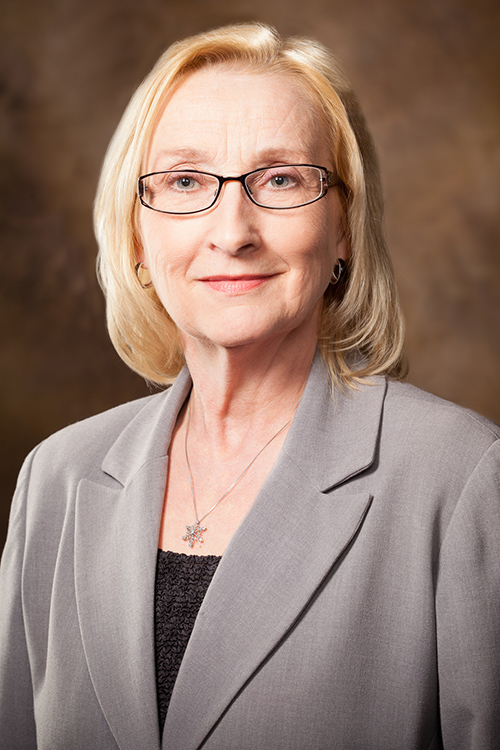The Eleanor Mann School of Nursing at the University of Arkansas is working to transform health care through nursing education and research in Arkansas and beyond.
The Doctor of Nursing Practice degree offered by the U of A recently was granted a five-year accreditation from the Commission on Collegiate Nursing Education.
"Given the demands of an increasingly complex health care system, accreditation of this DNP program will contribute to improved health outcomes in Northwest Arkansas and beyond," said Julie Hoff, director of the nursing school. "The American Association of Colleges of Nursing recommends the DNP as the terminal degree for advanced practice nurses, including nurse practitioners, nurse midwives, clinical nurse specialists, nurse informatics specialists and health care systems administrators."
The commission requires programs to meet four accreditation standards: mission and governance, institutional commitment and resources, curriculum and teaching-learning practices, and assessment and achievement of program outcomes. The accreditation process ensures the quality and integrity of baccalaureate, graduate and residency programs in nursing.
The Doctor of Nursing Practice degree was developed to meet the changing demands of the nation's complex health care environment. DNP-prepared advanced practice nurse practitioners have scientific knowledge and advanced clinical expertise to ensure quality patient outcomes in diverse health-care settings. The U of A offers two DNP concentrations: family nurse practitioner and the adult-geriatric acute care nurse practitioner. Post-baccalaureate or post-master's programs of study are offered.
Enrollment of the first DNP cohort took place in the fall of 2013 and the first cohort of students graduated in the spring of 2015. The coursework for the degree program is offered online through the Global Campus, and the program requires occasional visits to campus.
Anna Jarrett, assistant professor of nursing, led a team that wrote a three-year Health Resources and Services Administration (a division of the U.S. Department of Health and Human Services) grant for $1,081,735 that was funded last July. Under Jarrett's leadership, this grant supports the development of a clinical training program that increases the number of advanced practice registered nurses and helps meet the health and wellness needs of Arkansas' medically underserved populations.
"Ultimately, this project will provide 30 DNP-prepared, practice-ready nurse practitioners for rural Arkansas," Jarrett said. "We are recruiting clinical partners and have signed a memorandum of understanding with our first clinical partner in this effort: Community Clinic of Northwest Arkansas, which is affiliated with Community Health Centers of Arkansas."
Over three years, the goal is to develop at least seven clinical partners. Each clinical partner will be assigned a cohort of six DNP students.
"The idea is that the DNP students will undergo clinical training in the same system for three years, not necessarily with the same preceptor or clinic, but within the same system," Jarrett said. "After that, the partners may choose to hire these nurse practitioners who already know the system, the community it serves, its organizational priorities and goals as well as its electronic health records. It is believed that this clinical cohort education model will shorten orientation for DNP graduates by several months. Clinical productivity is diminished when advanced practice nurse students are required to move across health care systems to obtain clinical training as systems tend to be more different than similar in their operations, electronic health records and other computerized network systems."
Clinical preceptors volunteer to support the professional formation of DNP students. Faculty members and preceptors share in the evaluation of the DNP student's performance in the clinical setting to ensure achievement of clinical competence.
"From a clinic's standpoint, it's tough to recruit a family nurse practitioner or acute care nurse practitioner when you need one," Jarrett said. "Now, the clinics will have six of them they have been able to interact with for a three-year period. There is no requirement to hire them, but these are employers who won't have to outsource to find qualified DNP prepared nurse practitioners."
While in the DNP program, the students conduct a clinical capstone project to help students build an expertise in practice inquiry. Capstones are conducted in the clinical setting where the student acquires clinical training. Clinical sites often benefit from the outcomes of capstones because they focus on improving care in the system and test innovative models of care delivery through practice inquiry, translational science and comparative effectiveness.
The federally funded project has required Jarrett to educate health care providers about the DNP itself. Most of the nurse practitioners working today have master's degrees and may not be familiar with the Doctor of Nursing Practice degree.
"I'm answering a lot of questions because the DNP is new to Northwest Arkansas and relatively new everywhere," Jarrett said. "This program brings DNP practice to settings that were uninformed or unable to recruit DNP-prepared nurse practitioners."
Having DNP-prepared nurse practitioners can also be an accolade for clinics, she said, because the U of A program graduates are required to have 1,035 clinical hours compared to 500 hours for a master's degree. This doubles the clinical exposure and allows a longer period of time to assimilate clinical expertise. A minimum of 1,000 clinical hours is required for the DNP by accrediting bodies.
Topics
Contacts
Heidi Wells, director of communications
College of Education and Health Professions
479-575-3138,
